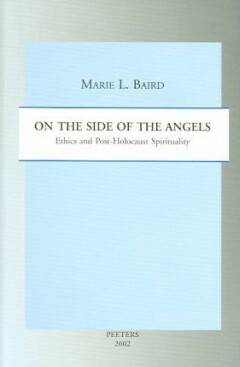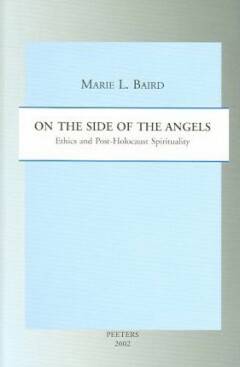
- Afhalen na 1 uur in een winkel met voorraad
- Gratis thuislevering in België vanaf € 30
- Ruim aanbod met 7 miljoen producten
- Afhalen na 1 uur in een winkel met voorraad
- Gratis thuislevering in België vanaf € 30
- Ruim aanbod met 7 miljoen producten
Zoeken
Omschrijving
The Holocaust demands a rethinking of spirituality, both human and Christian. Traditional definitions of spirituality that focus on the human capacity for self-transcendence in relation to an ultimate horizon of meaning, whether or not that ultimate horizon is called 'God', are inadequate after the Holocaust to the degree that they make ethical responsibility a secondary consideration. Because the unthinkable has, in fact, happened, a contemporary spirituality must locate ethical responsibility for the other at the heart of human subjectivity and self-transcendence. The extreme suffering of the incarcerated and murdered, as well as the ethical engagement of the rescuers cry out for a newly articulated spirituality that defines self-transcendence primarily as ethical responsibility. This study also contributes to a contemporary discussion situated at the nexus of philosophy and spirituality. This discussion seeks to characterize spirituality by using terms other than the traditional categories of being. Such an approach may reveal the contours and dynamics of a spirituality springing from the ethical consideration of the other. This study defines spirituality as fundamentally self-transcending ethical engagement in which the subject 'enacts' himself or herself into the fullness of his or her humanity. This new perspective stresses ethical engagement over the ontologically-based conceptual categories found in traditional philosophical or theological anthropologies.
Specificaties
Betrokkenen
- Auteur(s):
- Uitgeverij:
Inhoud
- Aantal bladzijden:
- 143
- Taal:
- Engels
- Reeks:
- Reeksnummer:
- nr. 7
Eigenschappen
- Productcode (EAN):
- 9789042911567
- Verschijningsdatum:
- 28/05/2002
- Uitvoering:
- Paperback
- Formaat:
- Trade paperback (VS)
- Afmetingen:
- 160 mm x 239 mm
- Gewicht:
- 249 g

Alleen bij Standaard Boekhandel
+ 145 punten op je klantenkaart van Standaard Boekhandel
Beoordelingen
We publiceren alleen reviews die voldoen aan de voorwaarden voor reviews. Bekijk onze voorwaarden voor reviews.







